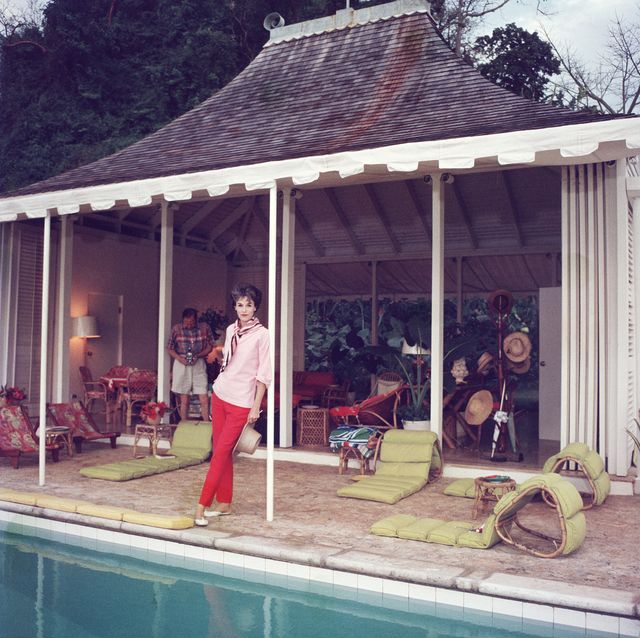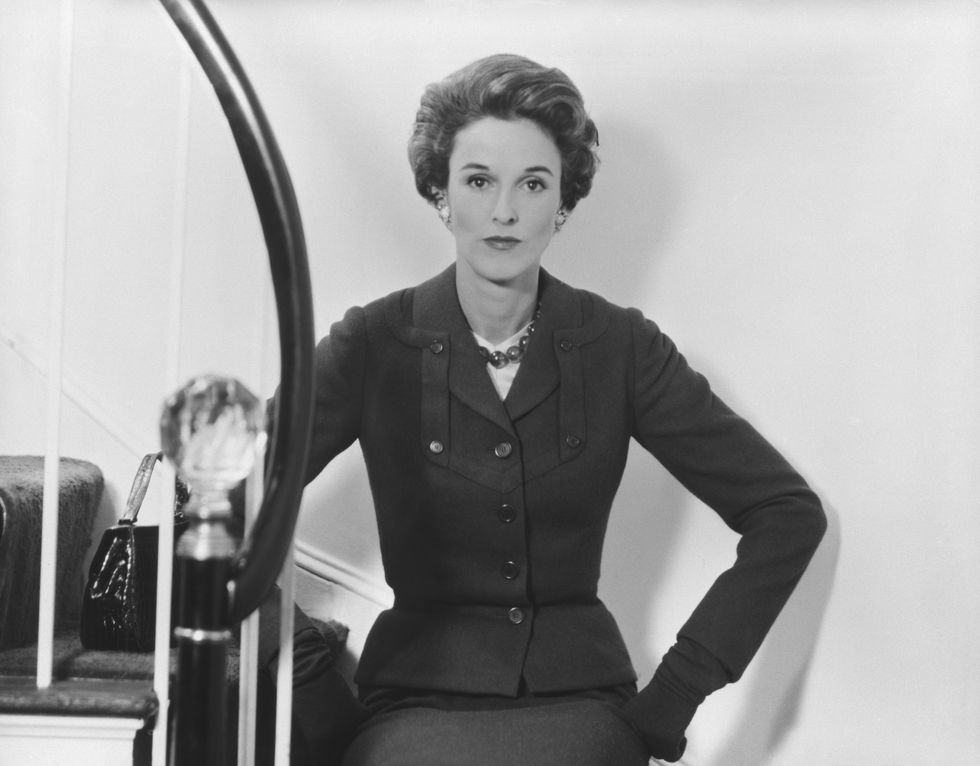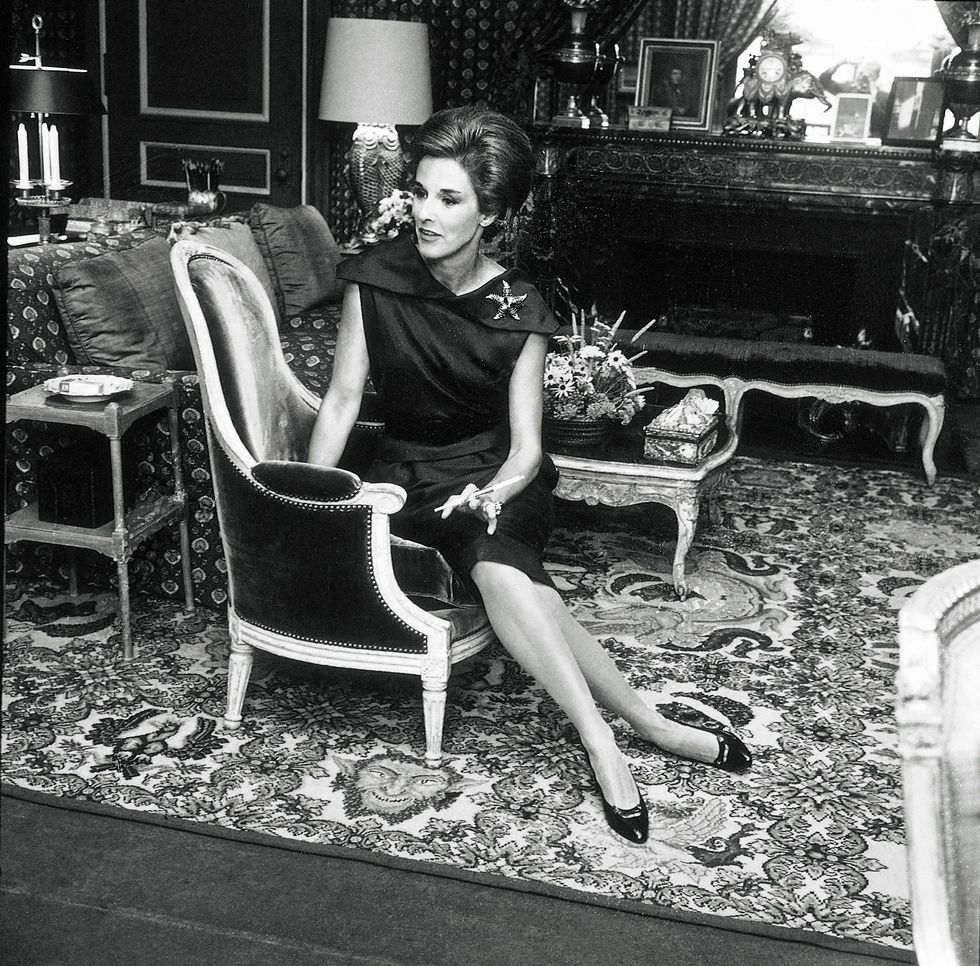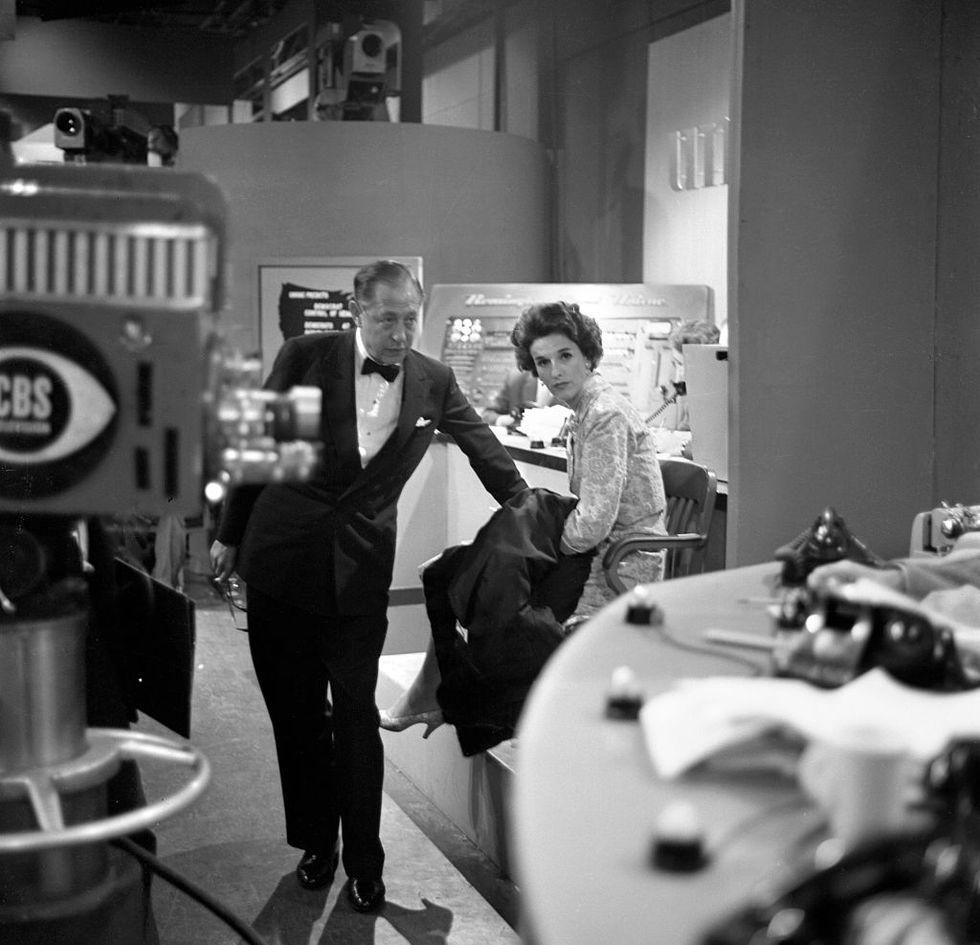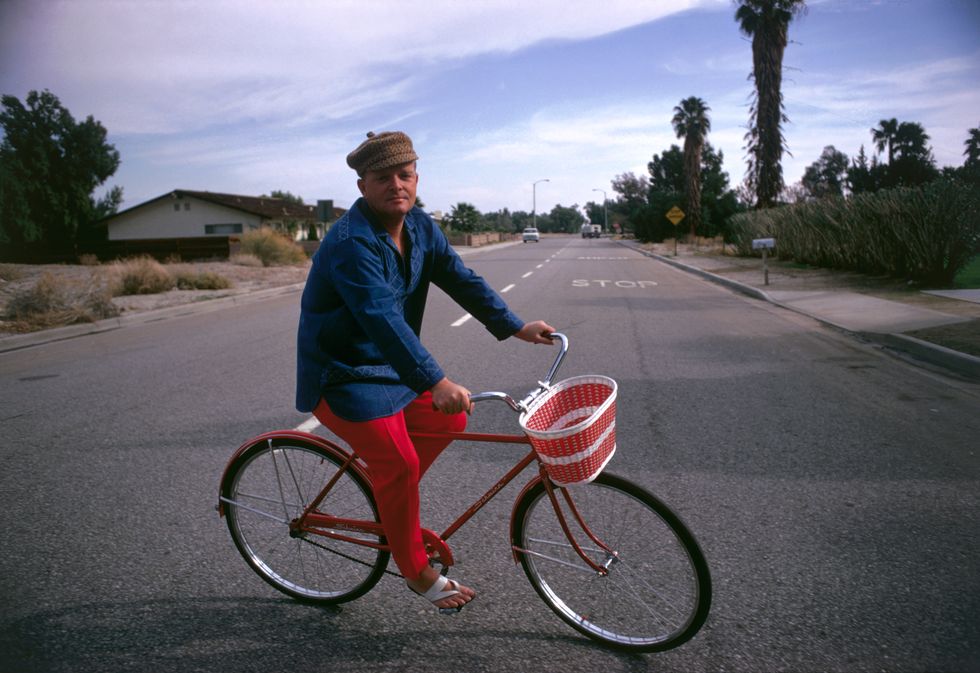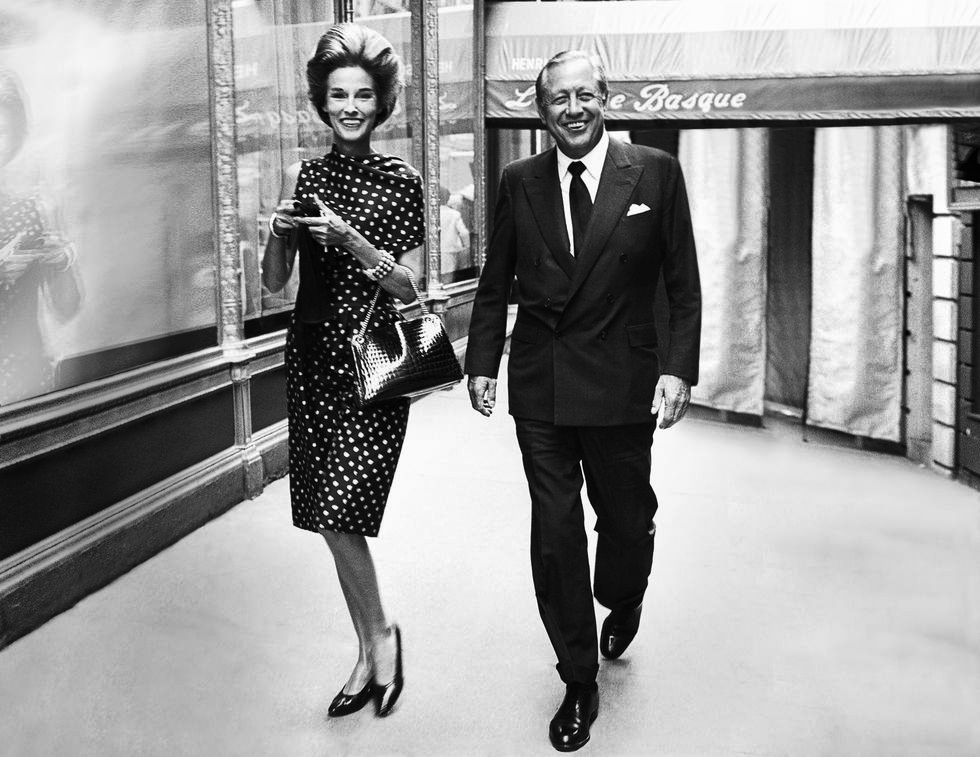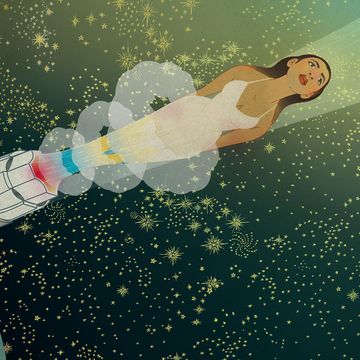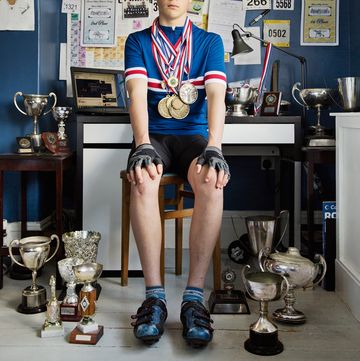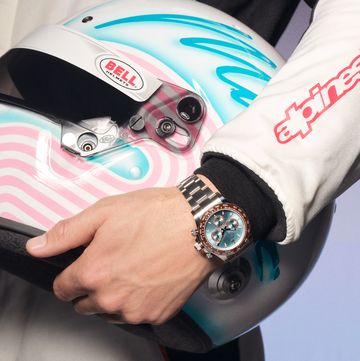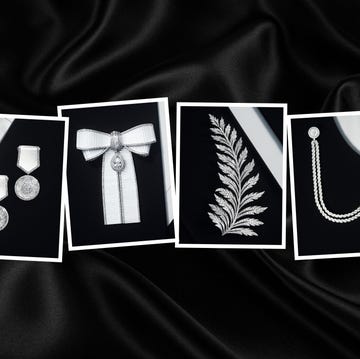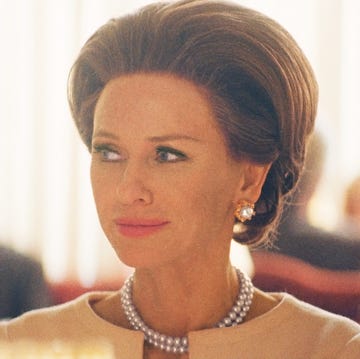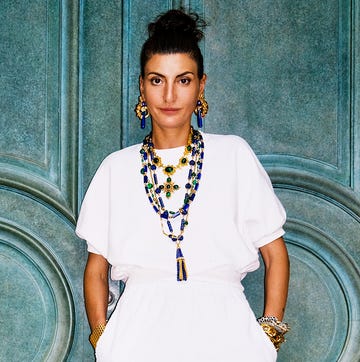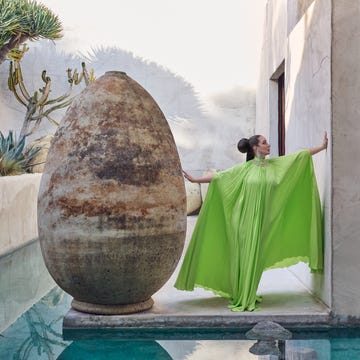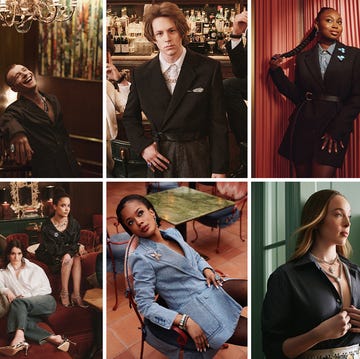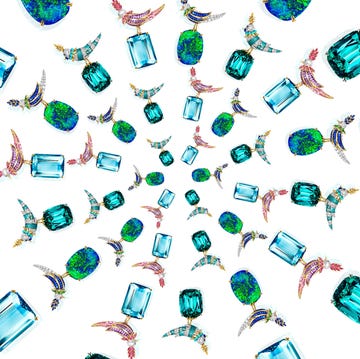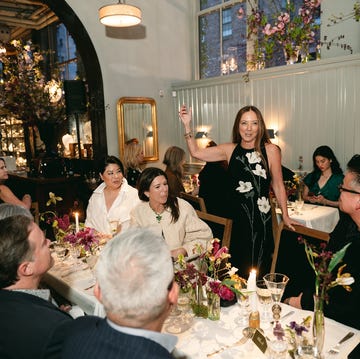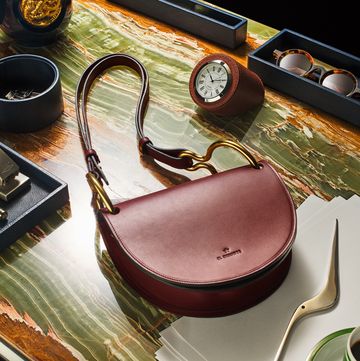This article originally appeared in the December 2010 issue of Town & Country.
In July of 1957, Babe and Bill Paley were celebrating their tenth anniversary at their house on Squam Lake, New Hampshire. He was fifty-six, smart and sleek and almost handsome. She was a drop-dead-gorgeous forty-two. They had recently bought this remote, woodsy place for their family of four children (Tony, Ba, Billy, and Kate) and two small dogs (Captain, a pug, and a Scottie, Sammy). To a college freshman from the Midwest who’d been hired to be the summer replacement for vacationing Zelly (Mademoiselle), they seemed a golden couple in a golden world. And when, on that hot July night, they exchanged anniversary gifts at dinner, I hung awestruck on every smiling word.
The willowy, aristocratic Babe had given her husband a brilliantly patterned Buillard. The powerful, roguish Bill had given her an exquisite diamond riviere necklace. First thing next morning, the Vuillard was hung above the mantel. The necklace reappeared that morning too.
Babe’s customary breakfast attire was one of two kimono-style robes. Each was of heavy mate silk with a wide, obi-like sash. One was daffodil yellow lined in milk-shake pink; the other, swimming-pool aqua lined in lavender. The sleeves of these robes were wide, and Babe always rolled back the cuffs to reveal the contrasting lining and her tan, fine-boned arms. On this Monday morning she came to breakfast wearing her yellow-and-pink robe and her magnificent diamond necklace. She wasn’t wearing it on her neck, though. No. She’d wrapped it twice around her wrist.
I thought I’d die.
And how had I come there, so read to die? The previous spring, my second semester at Barnard, I’d gone looking for a summer job at student placement as a “mother’s helper.” My friends had reported that the beaches of fabulous Long Island (somewhere near Manhattan?) were chock-full of families wanting help. So I fantasized about building sandcastles with adorable white-haired toddlers and possibly helping Mom slice iceberg lettuce for dinner salads—with Kraft French dressing. In truth, I wasn’t exactly qualified to be anything other than a mother’s helper, but I liked children—sort of—and figured it might be considered a plus. So I left my info with the office. And a few days later got a call that—in sundry curious ways—changed my life.
I sat before the placement director’s big desk as she portentously, and maybe a little nervously, explained that an important Columbia trustee was offering a Barnard girl a position. His name was a secret, as were the specifics of the job, but … Was I capable of caring for four children? (Of course.) Could I be happy with only a six-week job? (Of course.) And the pay was $55 a week. Was that satisfactory? Was it! (The college year, room and board inclusive, cost $1,200.) She went on to say that other girls were being sent for an interview, which sobered me considerably. This job was very much a plum, important to the school. As I left, she handed me a folded slip of paper and instructed me to be at the address enclosed at twelve o’clock the following Thursday. I would have to miss a class.
That day, I took a bus to 2 East 55th Street and thought I must be lost. It was a hotel—the St. Regis. They lived in a hotel? I checked the other corners to be sure I wasn’t wrong. But no. They lived in a hotel. I climbed the short flight of red-carpeted stairs, feeling scared but somewhat soignee in my best pencil-slim skirt and green silk blouse, and uncomfortably tall in my new black-and-white spectators. I approached the mahogany desk.
“Paley?” the uniformed desk clerk said, looking me over in puzzlement and disdain (and instantly confirming my inner conviction that I’d never been anything but provincial). “Elevator’s over there,” he said, jerking his thumb. Cheeks burning, I pretended to check some dirt of my white cotton gloves as I found the elevator, went up, stepped out, and knocked. When the door opened, it was all I could do not to gasp. For standing there, offering me an intimidatingly firm handshake, was—yes—the most beautiful woman I had ever seen. Her short brown hair (Sculpted waves, slight bangs) was impeccably coiffed; her oval face was unusually long and pale; her narrow nose, high bridged. She was tall as I was and paper-thin, with a long, long neck on which she wore a choker-length strand of gleaming pearls. Her perfect navy suit with its three-quarter sleeves perfectly matched her impossibly narrow low navy heels. And just over her shoulder was the world’s most extraordinary room: walls curtained in red-brown print (and, in memory, a tented ceiling), French furniture artfully scattered on a needlepoint carpet stitched with blackamoor heads, and, above the whole, a Venetian chandelier centered by a clock. I didn’t know what to look at first.
With incomparable poise, Mrs. William Paley introduced herself and showed me a plumped bergère. She moved like a deer, and I couldn’t tear my eyes away as, cigarette holder cocked in one graceful hand, she offered me a cigarette, lit it for me, and began to talk.
What was my background—my qualifications, my school, my family? What experience had I had? (I’d been a camp counselor.) What should she tell me about her children? At last, I began to focus. It turned out these were not going to be the happy toddlers of my imagination. Two were from her first marriage, and two from her marriage to Paley, and they ranged in age from seven to fifteen. As she painstakingly described them—their abilities, their small failings, their achievements, their personalities—she became a little sad. For Freud was our religion then (even college freshman had read Freud), and mothers, as everyone knew, were to blame for everything wrong. I suppose I expressed the hope of helping to make her children all that she wished them to be, or happy for six weeks or something, yet the only thing I really remember about the interview was Mrs. Paley asking me if I played tennis. I lied and said yes. She smiled encouragingly. Then, adjusting her collar and smoothing her skirt, she rose and said she’d be leaving with me. As we stood together waiting for the elevator, she asked, turning up her slender wrist, if I would mind buttoning her glove. She wore a short white kid glove with a single pearl button and submitted herself to me with graceful and accustomed patience as I struggled with that little pearls. I knew if I didn’t slip it into its maddeningly tiny loop before the elevator came, I’d lose this incredible job. I buttoned it.
Which is how I eventually found myself in the backseat of a noiseless black limousine on my way to Kiluna Farm on Long Island with the attractive (but so very old) William S. Paley, chairman of the board of CBS. We’d met in his Rockefeller Center Louis XV-furnished office (known as Black Rock), and, given that it was a long drive from Manhattan to Manhasset, he turned out to be remarkably patient with a young woman who spent the entire trip questioning him as to where he was from and what sort of business he was in and did he enjoy working in TV and ration and how did he get into that no doubt interesting field.
Kiluna Farm itself surprised me by not actually being a farm. Rather, it was an elegant country house and very, very beautiful, as were its extensive gardens, where, I discovered over the next few days, there were two swimming pools: one for the family and one for the staff. In keeping with all that beauty was the splendor of my guest room, only outdone by its adjacent bather. Papered in red roses on a white background (with lots of air between the flowers), it shines in memory because the wallpaper continued above and around the big, deep tub, where it was covered by huge sheets of glass that, I learned firsthand, did a superb job of protecting it from overenthusiastic bathers.
In Manhasset, too, I met the genuinely nice children (!) and was shown by a proud Paley his brand-new motorized bed. And at last, like a royal procession of Russian czars, I and the entire Paley retinue—cook, servants, children, dogs—traveled by private plan to Squam Lake.
The summer palace there was large, of course, lakeside, and sylvan. Framed by rough timbers, porches, and stone, it was a perfectly appointed summer camp. There were docks and canoes and sailboats, a (worrying) clay tennis court, bicycles, motorboats, motorcars, and games. The games were for rainy days, of course, where, in the spacious living room, downy chintz sofas and colorful rugs made rustic into chic. Oversized vases of rubrum lilies, flown fresh from the Manhasset greenhouses, perfumed that cool, clean air, and porcelain bowls stayed magically full of fresh litchi nuts. There was no TV, oddly, but there were shelves of promising best sellers and only a few of the usual must books. Bill stayed in Manhattan throughout the week, leaving Barbara Cushing Mortimer Paley, in white shirt with rolled-up sleeves, slim khaki pants, and Panama hat, to rule this outpost of their empire.
And rule she did. For not only was Babe patrician in looks and dress, she walked and spoke like a queen and almost never raised her voice. She’d been schooled to all this, naturally, but she did it so well. She had the wonderful manners of royalty. She knew to inquire after the housekeeper’s children, always remembering their names. She knew about going to the kitchen to compliment the cook. She did her correspondence every morning and wouldn’t eat or smoke without first offering whatever it was to her guests. That included the offer of a bullshot at lunch (beef bouillon and tomato juice) and drinks before dinner for me. I’m afraid I accepted more often than I should have, since I wasn’t of legal drinking age. Then, too, I was never quite clear as to whether I was a friend or an employee. Babe was unfailingly, infinitely, polite: to the staff, to the dogs, to the children, to mother’s helpers. For example, one Sunday morning she carefully explained to me that other people in the house had been looking forward to doing the Times crossword puzzle and perhaps I should keep that in mind. (I died.) She was also the ideal hostess, arranging outings and sports and planning inventive meals, often with themes. Once, she had the cook do a dinner of nothing but clams: chowder, steamers, fried clams, and stewed. Another time, it was all fresh corn. Babe expressed delight at every sunset sail, at anyone’s being able to get up on water skis, each very dusty bike ride, every Sunday visit to church. She was so perfect, it almost seemed as if everyone in the house was a supporting actor in some marvelous play, with Babe the unquestioned star. Thus it was only when Truman Capote arrived for a week’s stay that I suspected she’d been playing a role. For he made her genuinely happy.
Truman, known as Tru, was like no one I had ever met. Though I knew who he was, of course: I was going to major in English, and when I learned he was coming, I made grandiose plans to worship at his feet and beg him to teach me how to write. He might, I even imagined, grasp my depth and literary genius, introduce me to his famous writer friends, fall deeply in love with me, and sweep me off to, er … Paris? So when he arrived in a flurry of bags and presents and kisses and turned out to be teeny-tiny, with this piercingly high voice and a tendency to squeal … for a day or so, I thought he was kidding around. He wasn’t about to kid around with me, however. He was dismissive—not to say contemptuous—of fawning, unuseful college girls. But oh, he did love Babe. And she loved him. She bloomed with Tru around. They were a pair of girlfriends sharing possibly nasty, but very funny, secrets. Everyone else—children, dogs, even Paley—was shut entirely out, as, from morning to night, they whispered and laughed together or, drinks in hand, danced around the living room, giggling like kids. I was a little shocked, actually, to see the queen waltzing with her court jester. There was something malicious about him. Something unpleasant. But Babe adored him, and after Tru left, despite the continuous arrival of friends like Slim Keith and producer Leyland Hayward, her light seemed perceptibly dimmed.
In retrospect, I think she was a pure construct of beauty and what was once called breeding. Her restrained and impeccable manners, especially towards her children, hid what may have been deep feelings of maternal ineptitude and stifled real connection. They might, too, have been a substitute for life. For Babe’s primary role was one of gracious bestowal. She struggled with or denied unhappiness and complication. Perhaps that was why she appeared not to fret about what her husband was up to in New York. Or what, if anything, she might be doing with her life. She was a lady, chained to that code. Only once did I see her angry.
She was puffing too quickly on her cigarette the day she found me in the living room to say she’d just opened a very upsetting letter. We were alone in the house, which must have accounted for this confidence. She and Bill, she continued, had applied for membership to a highly exclusive country club and had been waiting for months to learn if they’d been accepted. That day, she’d received the club’s decision. She was livid. “Mr. Paley is Jewish. Did you know that?” I didn’t, but I knew that in polite society in the ’50s, “Jewish” meant the damning and descriptive NOKD (Not Our Kind, Dear). Still … William S. Paley? Media lord? Major philanthropist? Art collector? Brother-in-law of Jock Whitney?! The famous club had said no. Oh, it was willing to accept Babe and her children with her first, socially acceptable husband. But it didn’t want Bill Paley and their children. She fumed. She raged. “Well, then, none of us will join,” she snapped, stubbing out her cigarette and yanking the butt from the holder. She stormed away to her room, leavening me thunderstruck. (It says much about those times that I believed her decision to alternately admirable, risky, and breathtaking.)
The remains of our summer drifted by, and when my stay was over, I was sorry to go—but not terribly sorry. I missed my boyfriend. I hadn’t had a day off since I’d arrived. I’d run out of games and playlets to amuse the kids. Paley had trounced me at Monopoly. And two of my molars had been pulled (one accidentally). I was ready for time off before school began.
Once at home, the first thing I did with my staggering earning was buy a white cotton shirt, a pair of khaki pants, and a man’s Panama hat with a high crown. The second thing I bought was a cigarette holder. Then I cut my hair. And, oh all right: in the course of the intervening years, I’ve copied that rose-covered wallpaper, eaten bowls and bowls of fresh litchi nuts, and indulged in an abiding passion for rubrum lilies. (They’re hard to find these days.)
Surprisingly—yet not surprisingly at all—Barbara Paley wrote my mother a nice thank-you note. It mentioned the teeth. It didn’t mention the tennis. And I, in my newfound stylishness, walked around for several months imagining I was Babe. I hoped in my heart I looked like her. But I knew I didn’t.
Nobody did.
